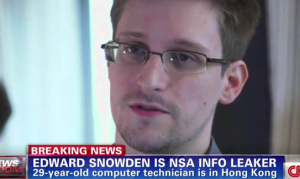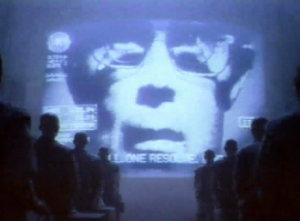
2013 was an enormous year for two kinds of big…Big Brother and Big Data. On June 9, 2013, the world became aware of Edward Snowden, a geeky young NSA analyst who introduced us to the largest personal surveillance operation ever created. He showed us they don’t have to listen to your conversations in today’s analytics world…they just have to know who you called and who that person called. They just have to know where you were and who else was there.
Turns out they all do it
But they did listen to calls…like heads of state of friendly countries like Germany’s Angela Merkel. Orwell’s 1984 concept of Big Brother was given a face and it looks like NSA. And we found out there was a Little Brother — many, actually — as it turns out those highly indignant countries operate the same kind of program. Governments as hypocrites? Who’d a thunk it.
So many countries do it because it is rather easy. Accumulo, the software developed by the NSA and based on Google’s Bigtable, was released to the Apache Foundation just last year and performs “compute on the fly,” allowing data to be added even as it constantly aggregates and summarizes. While we didn’t realize the scale, we shouldn’t have been very surprised about how it would be used.
The 1984 irony
Secondly, they do it because their populations, so far, let them. There’s been relatively little outcry considering the impact. Smartphones combined with Big Data technologies make the public into “zombies” according to the NSA. Ironically, the same agency refers to Steve Jobs as “Big Brother,” and strong sales of the iPhone 5S show how much we’re already desensitized. There’s been no rejection of smartphones nor will there be.
After everything that’s happened, Americans themselves still can’t decide if NSA’s program is OK and whether Snowden is a hero or traitor. In other countries that haven’t had their own 9/11, however, he’s a hero by a 2-1 margin, even if they aren’t looking to their own governments for answers. The reality is that our comfort with government surveillance is directly proportional to the perceived threat to our personal security. We want our governments to have the means to protect us.
Death of James Bond?
 While the NSA gave us a face for Orwell’s concept of Big Brother, we forever lost our image of the James Bond kind of international spy. No more jumping from rooftops, hand to hand combat and seducing the exotically beautiful girl. Today’s man of mystery is pasty, has myopia, a scraggly beard and his weapon of choice is the press.
While the NSA gave us a face for Orwell’s concept of Big Brother, we forever lost our image of the James Bond kind of international spy. No more jumping from rooftops, hand to hand combat and seducing the exotically beautiful girl. Today’s man of mystery is pasty, has myopia, a scraggly beard and his weapon of choice is the press.
With all of this said, there are signs that maybe, just maybe, we’ll have surveillance reform. That doesn’t necessarily mean we’ll stop collecting data, but more likely means we’ll put greater checks in place to make sure surveillance’s purpose and boundaries are clear. Data is a genie out of the bottle. It can’t be put back because the perceived personal and societal benefits outweigh the perceived cost — so far.





 All Things D
All Things D ARS Technica
ARS Technica Engadget
Engadget GigaOM
GigaOM Mashable
Mashable TechCrunch
TechCrunch The Verge
The Verge Venture Beat
Venture Beat Wired
Wired Chris Brogan
Chris Brogan Brian Solis
Brian Solis Chris Dixon
Chris Dixon Clay Shirky Blog
Clay Shirky Blog HBR Blog
HBR Blog IT Redux
IT Redux Jeremiah Owyang
Jeremiah Owyang Radar O'Reilly
Radar O'Reilly Seth Godin Blog
Seth Godin Blog SocialMedia Today
SocialMedia Today Solve for Interesting
Solve for Interesting The TIBCO Blog
The TIBCO Blog Lifehacker
Lifehacker
